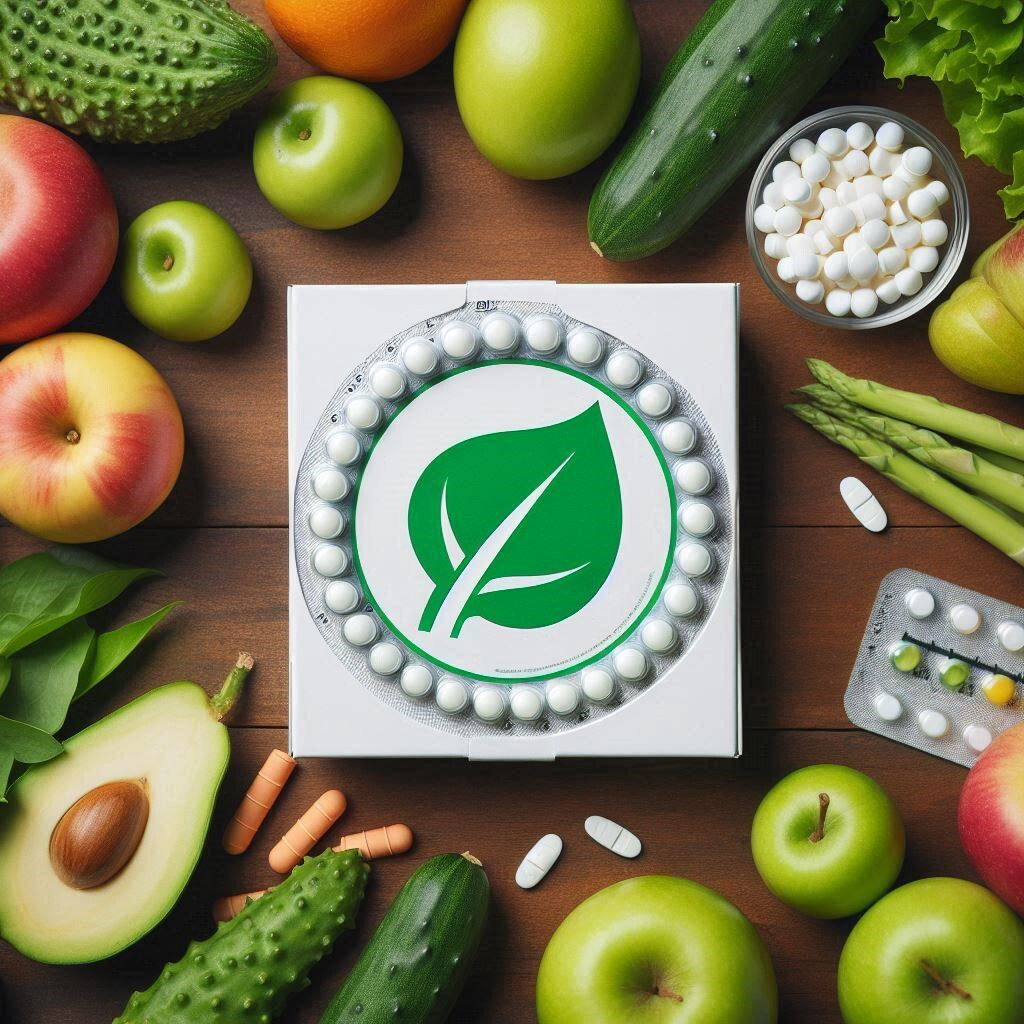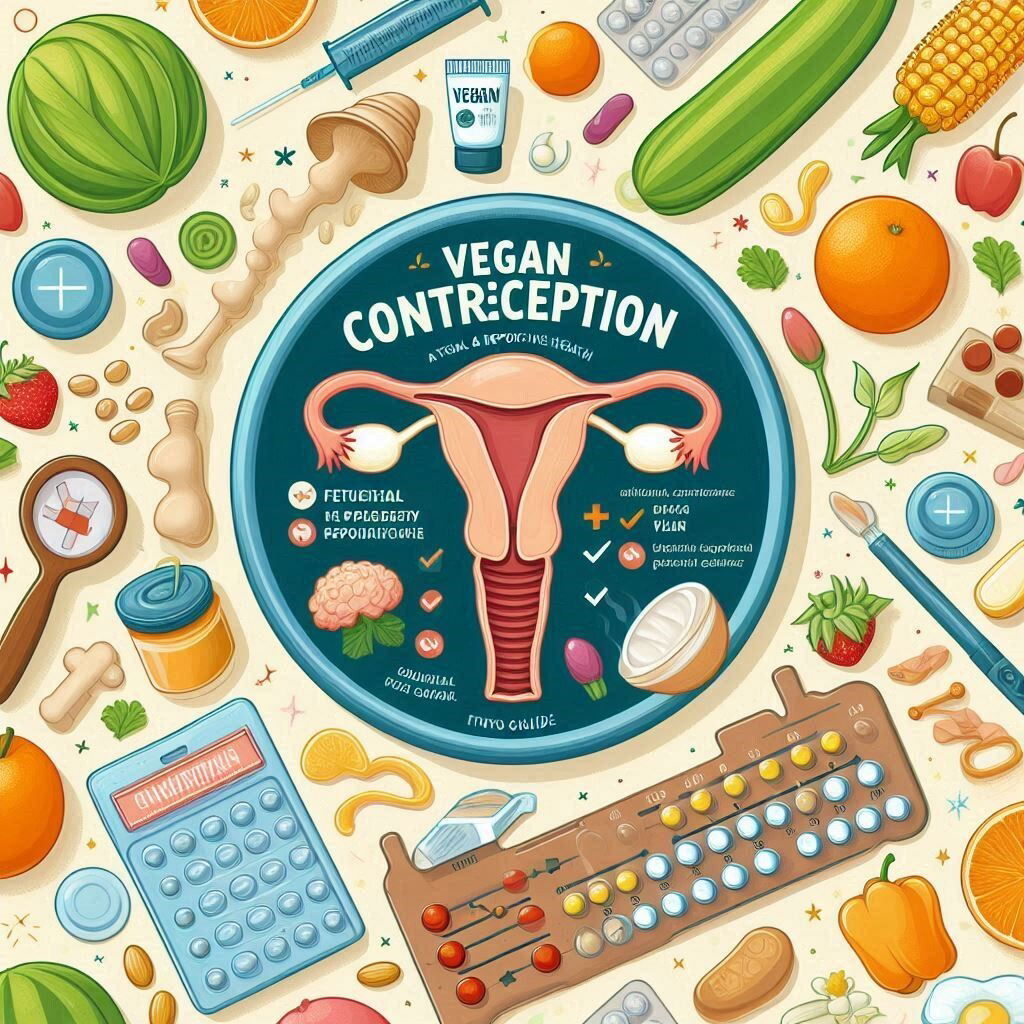Finding a Vegan Contraception: A Guide of Ethical and Reproductive Health

Introduction
The prevalence of veganism has defined many changes in lifestyle, including those of a reproductive nature. Sometimes, it might be difficult to choose the option that would meet the standards of an ethical lifestyle. In light of the changes that are gradually becoming evident in all fields of healthcare, it is important to consider the impact of these changes on reproductive health, specifically, the choices that people make regarding contraception. The current article provides an overview of vegan contraception options and discusses their impact on reproductive health.
Why Vegan Contraception Makes a Difference
Ensuring Ethical Choices and Reproductive Health Safety
Veganism goes far beyond meals and represents the entirety of a person’s lifestyle choices with respect to clothing, cosmetics, and healthcare, including contraception. As a critical component of reproductive health, contraception may conflict with the view that vegans have on utilizing animal-derived materials for a wide range of purposes, including healthcare, and testing of different scholarly interest. Thus, vegan contraception is the tools and techniques that can be viewed as ethically and morally acceptable by those who follow veganism as their lifestyle choice.
Ethical Concerns Associated with Non-vegan Contraception
The use of conventional contraception may involve a range of materials that have been tested on animals or include animal-derived components. For instance, most condoms currently in use are coated with a milk protein, casein, as a lubricant. It can be presumed that such cases might conflict with the ideas of vegans regarding the use of any animal materials. However, many recent innovations have created vegan-friendly options for the protection of individuals from sexually transmitted disease. For instance, glyde, sustain natural, and condoms represent a part of the most commonly used vegan contraception. The latter can be defined as cruelty-free, as they are not tested on animals or other organisms. Another type of contraception that is currently in use is the barrier contraception method, which cannot be considered vegan-unfriendly. Such options as diaphragms and cervical caps are typically made of either silicone or latex and can be used with the spermicide that does not contain gel. However, to ensure vegan-friendly values, the most critical concerns is the use of only non-gel spermicide because the gel component is made of animal fat and, therefore, is not vegan-friendl . Yet the latter provides an easily accessible and reusable option for contraception without presenting any animal-derived products.
Most oral contraceptives consist lactose and were experimented with hairs. Nevertheless, currently, many developers begin producing vegan products without any animal ingredients and conducting their tests ethically.
Vegan contraceptives
Intrauterine Device
IUD, especially cooper intrauterine device is also vegan and not tested on animals. It is a very good way to prevent unwanted pregnancy for a long time by inserting a device in the female’s uterus.
Fertility Awareness Methods for Natural Family Planning
The fertility awareness is counted from the first to the last day of bleeding. Generally, it is from 14th to 28th day, where an egg can develop in a fertile woman. The ovulation predictor kit is combined in order to track a woman’s cycle.
Herbs Used for Contraception
Some women use herbs to prevent pregnancy, but the effect of them does not always work. Although the method is natural, it is of paramount importance to consult with a medical doctor prior to utilizing the herbs.
FAQ
Q1. Are there any vegan-friendly birth control pills available?
Yes, a few companies are developing vegan-friendly birth control pills that do not contain animal-derived ingredients and abide by ethical testing standards.
Q2. Can I use a standard condom if I’m completely vegan?
When using a condom, refer to its ingredient list for confirming its suitability for vegans. Standard condoms may include casein, which is a milk protein. However, some companies have developed vegan condoms with plant-based lubricants and are certified to be cruelty-free.
Q3. What is the best form of vegan contraception?
Among the best vegan contraceptives are barrier methods such as vegan condoms and diaphragms, non-hormonal IUDs, and continuing fertility awareness using temperature and cycle tracking.
Q4. Is natural family planning effective?
Fertility awareness or natural family planning can be a highly effective contraceptive. However, the practice requires strict adherence to the accurate monitoring of when a woman is most fertile, usually corresponding to between 21-24 days after her monthly cycle ends.
Q5. Are the herbal contraceptives reliable?
The reliability of herbal contraceptives varies and should generally be approached with caution. It remains essential for a healthcare professional to be informed before relying on any herbal contraceptive.
Conclusion
Vegan contraception lets both women adhere to their ethical integrity and their reproductive health. As we see, there are many forms for individuals to better control their use of vegan methods. Speaking to healthcare professionals regularly alongside a balanced diet is continued to be crucial for maintaining optimal reproductive health and well-being.
